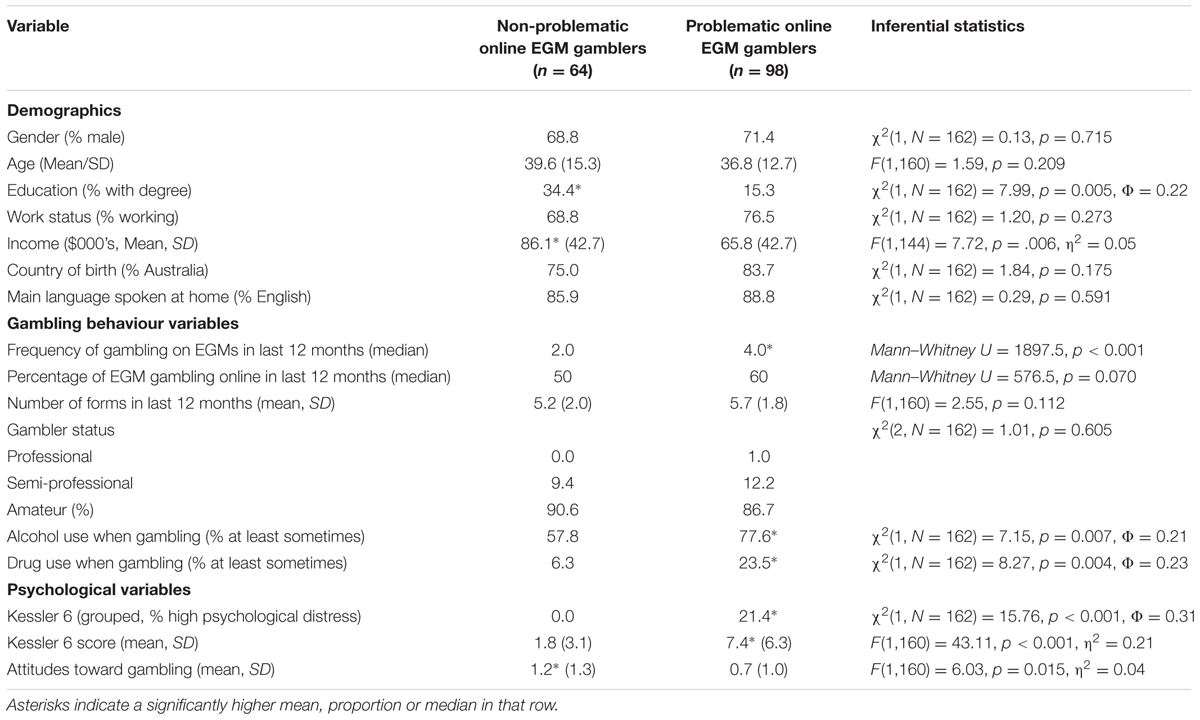Distress Tolerance Gambling
In fact, the combination of distress and frequent gambling behavior predicts gambling disorder status with greater accuracy than gambling behavior alone in emerging adults 13. DISTRESS TOLERANCE Focus on Radical Acceptance (Should vs. The-way- it-is worlds) RA starts with the therapist- must be non-judgmental, describing behavior without giving it a value, teaching client to do the same Acknowledging transient nature of emotions Use of empathy helps turning of the mind Is this distress danger or discomfort? According to the DSM V, a Gambling addiction is defined as a ‘persistent and recurrent problematic gambling behavior, leading to clinically significant impairment or distress, as indicated by the individual exhibiting four or more of the following criteria in a 12 month period.”.
Distress Tolerance (Dialectical Behavior Therapy)
- Distress tolerance is a person's ability to manage actual or perceived emotional distress. It also involves being able to make it through an emotional incident without making it worse. People who have low distress tolerance tend to become overwhelmed by stressful situations and may sometimes turn to unhealthy or even destructive ways of coping.
- This study is the first to investigate the effectiveness of a brief DBT treatment for problem gambling, with a focus on measuring change in the four DBT process skills (mindfulness, distress tolerance, emotion dysregulation, and negative relationships).
When people “cope” with stress and crisis, they find out ways (behaviors) that relieve stress, however, some of these ways come with heavy consequences. Examples of ineffective behaviors are drug and alcohol use, self-injury, gambling, spending money, and overeating.
We can learn distress tolerance skills to effectively manage the stress and crisis. These skills are more helpful than dealing with the consequences of the ineffective behaviors that make life worse.
Try it out
Make two lists, one is your ineffective coping behaviors, and the second is your healthy coping behaviors. If you’re struggling coming up with the healthy ones, keep thinking, because everyone has at least a few.
The goal is to work on eliminating the ineffective coping behaviors on the first list while developing the behaviors on the second.
This process is “doing more of what works”, replacing the ineffective with the healthy and effective.
Guidelines to improve distress tolerance skills
Distress Tolerance Bingo
1. Practice the skills daily, even when you’re not feeling distressed. The skills tend to be enjoyable, so practicing shouldn’t feel like work.
2. Diversify the skills, try new ones, and practice every skill more than once because you don’t know which ones will “click” for you.
3. Organize a distress tolerance plan for when you’re in crisis and choose to follow the plan. It will keep you focused. Write down your organized plan on an index card. This would be your coping behaviors and any people who can provide support. Keep this card with you.
This index card plan works well for children while they’re away from home. Example: at school.
Distress tolerance skills to learn

Distress Tolerance Gambling Definition
• Wise Mind: ACCEPTS acronym
• IMPROVE acronym
• Self-Soothe skills: vision, hearing, smell, taste, and touch.
• Radical Acceptance
• Everyday Acceptance
• Willingness
• Bridge-Burning
• Ride the Wave: Urge-Surfing
• Grounding
• Pros and Cons

This is general information on distress tolerance and the skills to learn to better cope with stress and crisis, the next step is to learn the skills themselves, practice applying them, watch for improvements, and make necessary adjustments.
Wise Mind: ACCEPTS
Resource
Lane Pederson, PsyD, LP, DBTC